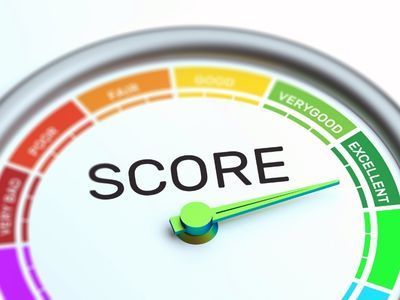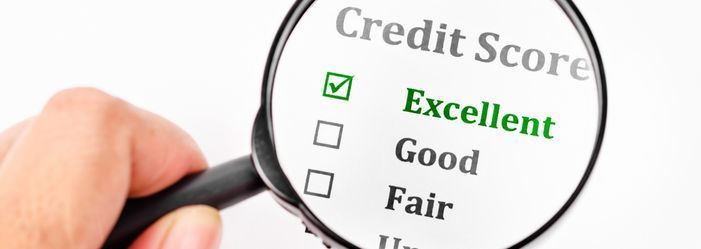The Ultimate Guide to Managing Your Credit Score
Most people know that credit scores are important but don't really understand how they work. In this article, let's look into credit scores, their meaning to your financial situation, and how quickly they can update.
Explanation of credit score
A credit score does not measure how well you are doing financially. Credit reports and scores measure how well you manage your debts and how much of a risk you are for lenders.
Credit scores look at five different factors. Like this article, we have detailed these in previous blogs, so here is the short version.
One-third of your score is based on whether or not you pay your bills on time.
Slightly less than one-third is based on how much of your available credit you are using.
One-third is divided up three ways: how long you have had a credit history and credit cards, what types of credit you have, and if you have applied for new loans.
As you can see, the most important factor is how well you pay your bills.
Importance of credit scores
Your credit scores and credit report determine future interest rates, ease of getting loans, and the possibility of getting certain jobs or professional licenses.
A good or excellent score means you are a good risk for lenders. The odds are higher that you will repay your debts.
Employers may be reluctant to hire people with poor reports because they could be a security risk, especially when handling money for the employer.
Overview of how often credit score updates
Information is reported to the credit bureaus once a month as you pay your bills and lenders. As a result, credit reports update once a month, and your credit score is recalculated once a month.
How Often Do Credit Scores Update?
Credit reports generally update once a month, although this depends on your unique situation.
Credit Reporting Agencies
Three major credit bureaus and several hundred smaller "boutique" bureaus exist. Since the Big Three main credit bureaus are most commonly used, we will look deeper at these.
The big three bureaus are Equifax, Experian, and TransUnion. These three do not exchange data, and each creditor may or may not report to all three agencies. In addition, each has a slightly different algorithm, so your credit scores will vary slightly.
Frequency of updates for Equifax, Experian, and TransUnion
Experian, Equifax, and TransUnion update at least once a month. If you pay off, open a new account, or change your debt-to-credit ratio, your score may be updated more frequently.
Factors that impact how often a credit score updates
Any action that affects one of the five factors will trigger a credit score update. For instance, if you fail to make a payment during the payment cycle, apply for new credit, pay down or increase your credit card balance, or add a new type of credit or new account, your credit score will be updated.
Why Is It Important to Know When Your Credit Score Updates?
Knowing when your credit report updates are important if you plan to apply for credit. Let's say you pay off a credit card bill. This will change your debt-to-credit ratio for the better. Your credit score will increase.
Understanding the impact of credit score changes
You may move into a higher category if your credit score increases enough. For instance, you may move from fair to good standing. This immediately makes you more attractive to lenders.
Knowing when to check your credit score
Information is relayed to the credit bureaus after the billing cycle ends. This varies for every bill. Because of this, you may see several updates a month.
If you want to check your credit score after making a big payment, wait at least a week. If you sign up for a free service like Credit Karma, you can check your credit scores as often as possible without penalties.
Planning ahead for loan applications
If you plan to take out a loan and can raise your credit score first, take the time to do that. You will get better terms.
The action that will raise your score most quickly is to pay down or off outstanding credit card balances.
What Can You Do to Improve Your Credit Score?
Your first step in improving your credit score is understanding how credit score, credit history, and credit reports work. Your next steps will take a bit of effort.
Review your credit report regularly
Errors happen. It is very important to review your credit report regularly. About 1/3 of all consumers in the US have reported errors on their credit reports.
Before the internet, consumers had to request a copy of their report to see the information. You are entitled to one free copy from each Big Three a year. Experts recommend getting a report from one credit bureau and then four months later, requesting a hard copy from the next, and then four months later, requesting one from the third. This cycle repeats every four months.
Alternatively, you can create accounts with the Big Three or a service like Credit Karma and check your credit histories online.
Disputing errors on your credit report
If you find an error, you can dispute it on the credit report. It may take several attempts and documentation, but the credit bureaus can fix the mistakes. You are entitled to get a copy of your corrected credit report.
Errors can include names or aliases, addresses, data older than seven or ten years for bankruptcy, and other important information. People discovered identity theft only when they checked their credit history.
Developing good credit habits
Your final step is to develop good financial habits. This means paying bills on time, paying down credit cards, and not applying for credit cards in exchange for discounts.
FAQs
Conclusion
Your credit score updates at least once a month. It is very important to check credit scores and look for updates periodically. You may be able to find and stop identity theft or can use the new report to get better terms on credit applications.
Paying your bills on time is the most important action you can take to improve your financial score over the long term.
The second most important step is to pay down your credit cards and reduce your debt-to-credit ratio. If you need help reducing your debt, we offer a free consultation.
By paying attention to your credit score, you can understand how well you manage your debt.
Reduce Your Credit Card Debt By Up to Half

BBB Reviews | 4.9/5.0 Rating










 Do Not Sell My Personal Information
Do Not Sell My Personal Information